In 2012 I was hired to work as a prep-cook in Antarctica, and believe me when I say it was one of the craziest experiences of my life. The hiring process alone took a few months (find out how I actually landed the job), and I had to go to three, count em’, three different doctors in order to be medically cleared. A little advice to anybody who wants to work in Antarctica: still got your wisdom teeth? It’s time to get them removed.
When I was finally hired, it was at the height of the Antarctic summer season, around mid-November of that year. My destination was McMurdo Station, one of three U.S. research stations in Antarctica and the largest station on the continent. I had gotten an unbelievably lucky break; apparently, someone had gotten fired and the staff needed a replacement prep-cook immediately. I was told I had a couple days to pack my things and say my goodbyes. Forty-eight hours later, I found myself on a military cargo plane en route to the coldest, windiest continent on earth: Antarctica.
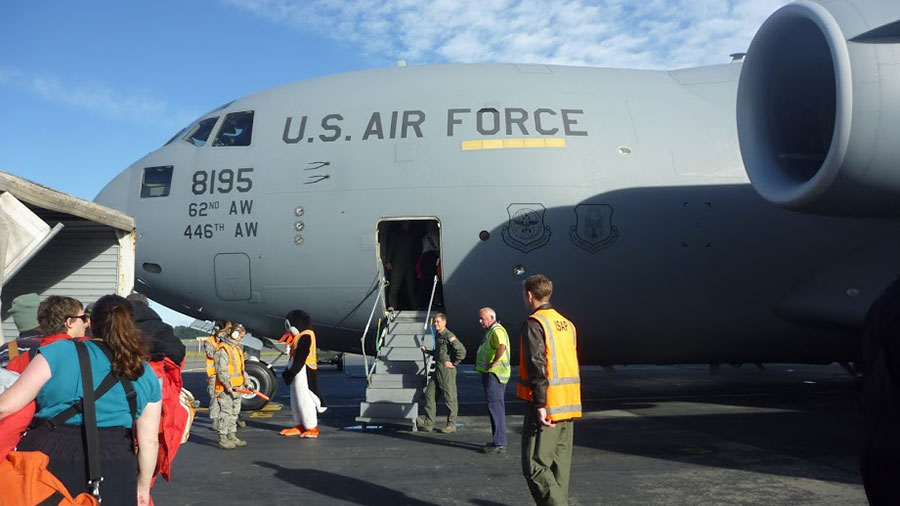
Photo by Liz Unger
It took me a little bit to get used to the rhythm of working at McMurdo. I spent about ten to eleven hours a day, six days a week, working in the galley on station. Meals were available day or night, everything was served buffet style, and the cafeteria included a flat-top grill, a meat-carving station, a sandwich bar, a salad line and an area reserved for desserts and breads. I did a lot of the prep work for the kitchen staff, which included cutting up fruits and vegetables and making sure a huge stockpile of celery, onion and carrots was available for the chefs at all times. I also made cold salads, mixed dressings, cut deli meats and cheese, created simple desserts and stocked the salad line.
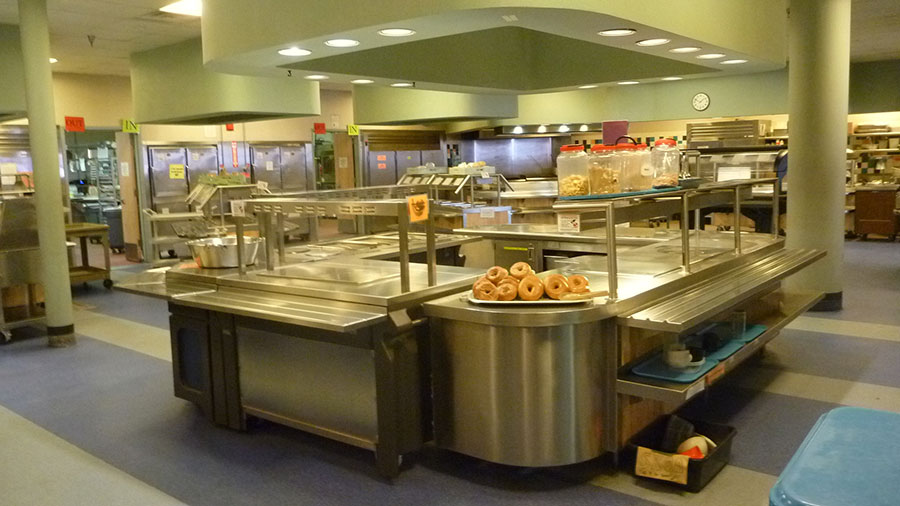
Photo by Liz Unger
It was awesome. I truly loved my job, and I loved learning new things about food every day. During my time at McMurdo, I gradually discovered how a large-scale galley ran. McMurdo Station housed over a thousand people at once during the summer season, so the galley was equipped with huge steam kettles, tilt skillets and other bizarre equipment like giant bowls we referred to as “contact lenses”.
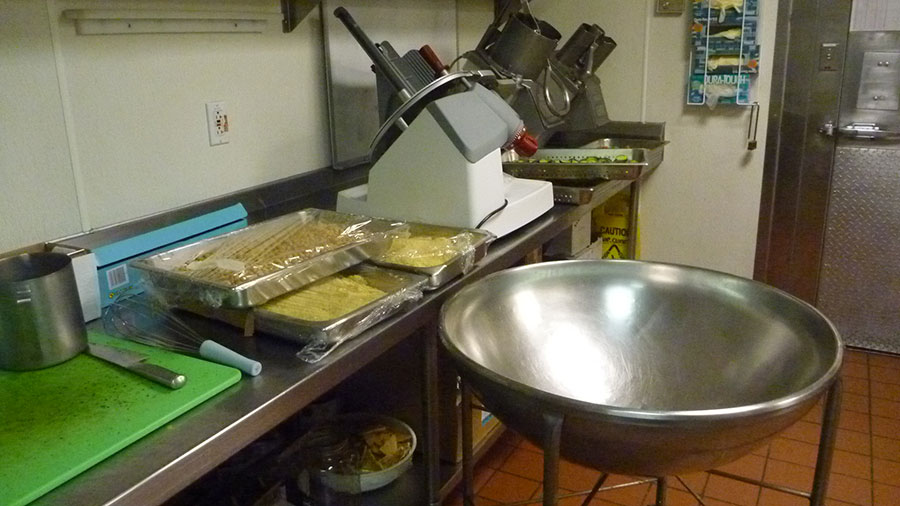
Photo by Liz Unger
The availability of fresh produce was something else I had to get used to. Fresh fruits and vegetables, known as “freshies” down on the Ice, were a luxurious commodity and mostly available at the beginning and end of the summer season. Freshies were dropped off via military cargo plane, imported from countries like New Zealand and the United States. As freshies started to run out, the galley crew had to use more and more frozen or canned fruits and vegetables for meals. We had no choice; the staff simply had to make do with what it had, which became more challenging as the season progressed.
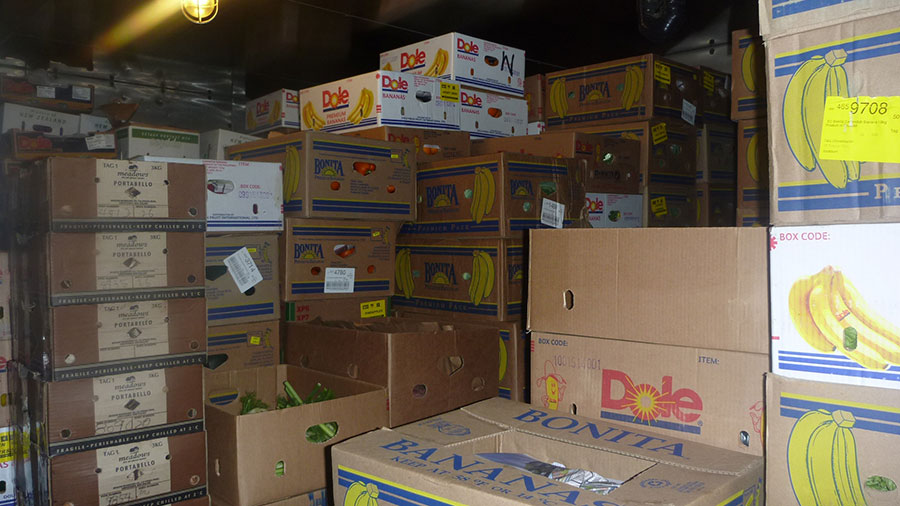
Photo by Liz Unger
I would say the most interesting aspect of my job was the process of befriending all of my crazy co-workers. Many of these people had really fascinating backgrounds; a few had worked as chefs at military bases in Afghanistan, while others had been coming down to Antarctica every summer for decades. Mostly, though, everybody seemed really adventurous and well-traveled.
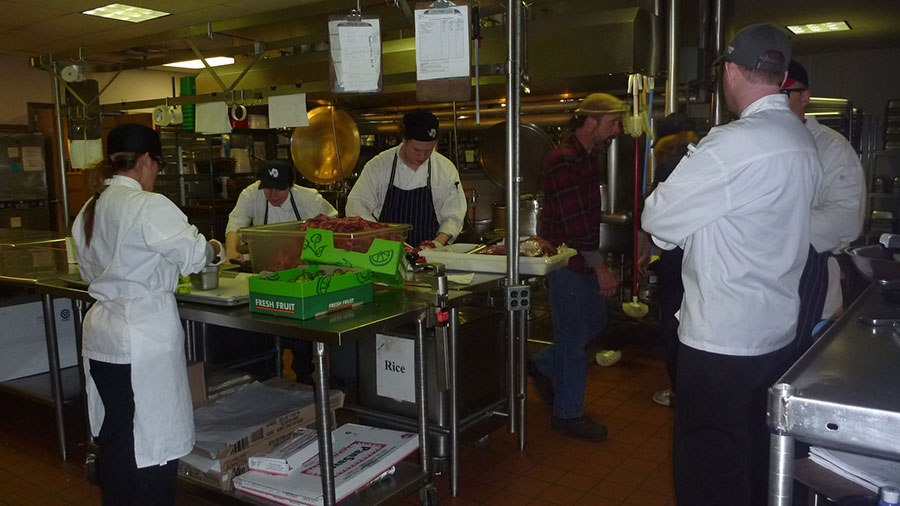
Photo by Liz Unger
Not to say that people were normal down there. Everyone was weird. Everyone. Ranging from a guy who shipped himself 12 jars of Fluff that he finished off in a week – with his hand – to a man named Ralph who would blast Metallica and stare you down while sharpening his chefs knives.
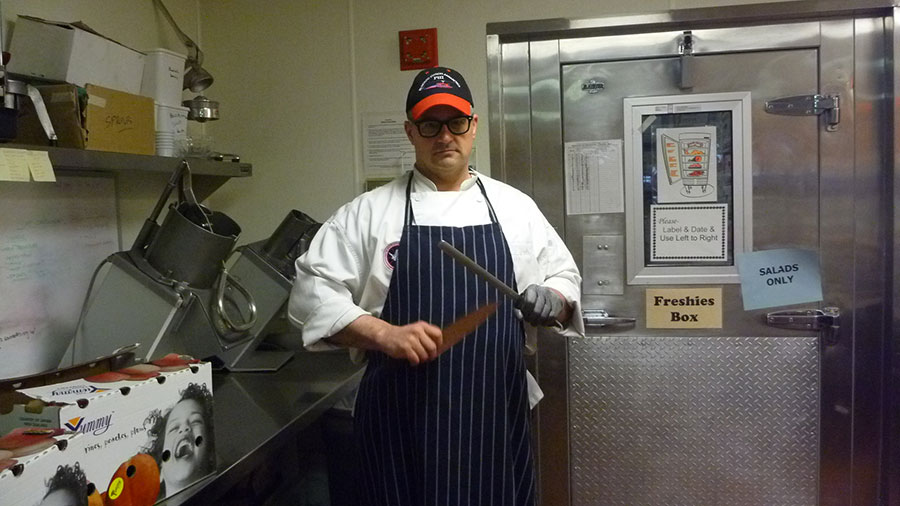
Photo by Liz Unger
Yep, looking back on that experience I would say, hands-down, that it was a very, very surreal one. The environment I was in and the types of people I worked with changed my entire outlook on food and life in general. I honestly don’t know if I would be where I am today, a grad student in NYU’s Food Studies program, if it weren’t for those four crazy months I spent as a prep-cook at McMurdo Station, Antarctica. Would I ever go back? Abso-freaking-lutely.

